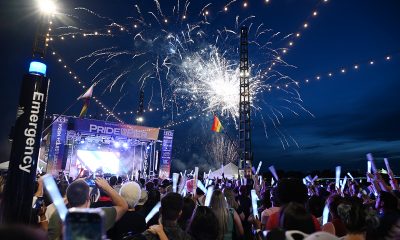Music & Concerts
Raunchy queer rapper Big Dipper readies Pride headlining set
Body-positive performer discovered career making campy, funny viral videos
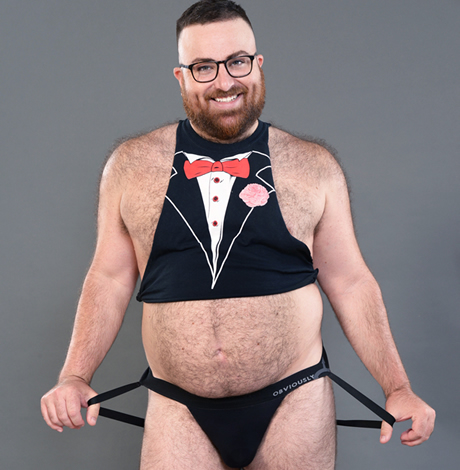
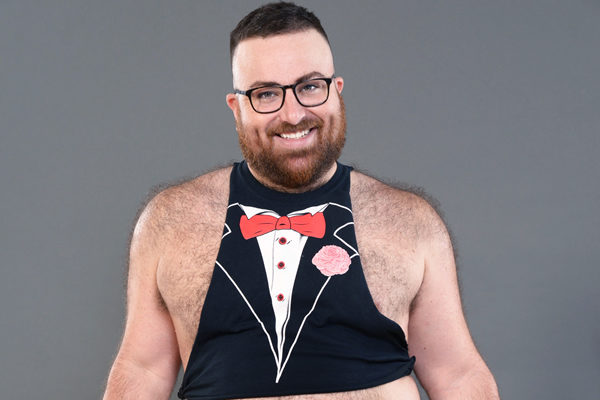
One of the headliners at this year’s Capital Pride Concert will be rapper Big Dipper, best known for his frank sexuality and tongue-in-cheek humor, such as in the video for the song “Lookin,” which features a group of nearly naked men getting wet at a soapy car wash — only the men in question are not the typical body types you would expect.
“They are all big, fat dudes dancing in skimpy shorts,” says the rapper, who identifies as a bear.
It wasn’t until he was 26 that Dan Stermer adopted the moniker Big Dipper and released his first song “Drip Drop,” a raunchy parody of Disney-esque tunes about cruising for sex. He quickly developed a cult following and started performing at clubs. Big Dipper is slated to perform around 5 p.m. on the Capital Concert Stage. (Meet-and-greet tickets for Big Dipper are $25 and were available as of Blade press time.)
WASHINGTON BLADE: What can those coming out to the concert expect from you?
BIG DIPPER: I just found out that someone who is performing after me has a very large tween fan base, so I need to be a little more buttoned-up and make it more age-appropriate than I normally do.
BLADE: How is that going to change what you planned? Your fans might be expecting raunchiness.
DIPPER: I love Pride events and I love the fact that we get to support people of all ages, even from a young age, but more often than not I am a nightclub act, so when I go out in the day, I’m sort of like a vampire and I need to think about what I can do that’s appropriate for everyone. I may just have to hold the mic away from my face on certain words. Sometimes I yell out to the crowd that it’s time for the little ones to put their earmuffs on because we’re going to talk about “this thing” but I’ll have to see what happens.
BLADE: So, preview what’s in store.
DIPPER: My show will be provocative, high-energy, sex-positive, body-positive and a celebration of queer identity, all set to the backdrop of beat-club music and a bunch of me yelling into a microphone.
BLADE: What made you decide to get into the music industry?
DIPPER: I started on a whim. I made up one song with a friend of mine as a joke and the response was so positive that it just snowballed. That was seven years ago and I’ve been at it ever since trying to stake my claim in one little corner of the music industry.
BLADE: Your videos are hilarious. Was it a conscious decision to draw people into your music by way of these outlandish videos?
DIPPER: I definitely had ideas I thought would go viral, but the videos were never intended just for that purpose. If it didn’t serve the song, I left the idea alone. They are not just about getting people to pay attention but are always about making the best video for the song. I think a lot of independent artists who don’t have representation with a label and on top of that are queer — and essentially a different kind of queer that the mainstream media doesn’t think they can make money off of — and I believe I fall in all of those categories, but often those kind of artists don’t have the money or resources to make videos. I’m lucky in that I have so many creative friends around to rally to make these videos with me. They are all a labor of love. It’s just about making art I want to put out in the world.
BLADE: How have these videos helped your career?
DIPPER: Well, because I’m able to make videos that catch people’s eye, it’s allowed me to create a fan base and play big shows, like Capital Pride.
BLADE: You opt not to just have the “pretty” people in your videos, but you mix it up with different body types. Why was that important to you?
DIPPER: Yes, because of statements like you just said — the so-called good-looking people. I never saw sort of big bodies represented in any sort of media or sexualized in any sort of media, and for me, it’s really important. The most I can do is be a representative for people who look like me. The more of us who represent our identity, the more people who will feel seen and heard. I don’t think there are a lot of chubby, hairy dudes dancing around and making music videos, so the fact I get to do that and have people feel seen, feels important.
BLADE: Did you ever think when you were starting out that you would play a big event like Capital Pride and perfrom in front of so many people?
DIPPER: I never set out to be a performer, so no. This has all been haphazard and I’ve been letting it grow over time. I feel really lucky. When I play these big events, it’s kind of shocking. These ideas from my brain that I wrote down on paper and yelled into a microphone, now I’m getting the chance to share them in front of all these people and they are cheering me on. That’s a wild thing.
BLADE: Do you set goals for yourself? Where would you like to be in five years?
DIPPER: I would love to make money doing this. This is my full-time job but I am an impoverished artist. It would be nice to feel like I could survive. I would also like to elevate what I do to a larger audience and play on straight bills and not have it be a token thing or have to censor myself.
Music & Concerts
Red, White, and Beyoncé: Queen Bey takes Cowboy Carter to D.C. for the Fourth of July
The legendary music icon performed on July 4 and 7 to a nearly sold-out Northwest Stadium.

Just in time for Independence Day, Beyoncé lit up Landover’s Commanders Field (formerly FedEx Field) with fireworks and fiery patriotism, bringing her deeply moving and genre-defying “Cowboy Carter” tour to the Washington, D.C. area.
The tour, which takes the global icon across nine cities in support of her chart-topping and Grammy-winning country album “Cowboy Carter,” landed in Prince George’s County, Maryland, over the Fourth of July weekend. From the moment Beyoncé stepped on stage, it was clear this was more than just a concert — it was a reclamation.
Drawing from classic Americana, sharp political commentary, and a reimagined vision of country music, the show served as a powerful reminder of how Black Americans — especially Black women — have long been overlooked in spaces they helped create. “Cowboy Carter” released in March 2024, is the second act in Beyoncé’s genre-traversing trilogy. With it, she became the first Black woman to win a Grammy for Best Country Album and also took home the coveted Album of the Year.
The record examines the Black American experience through the lens of country music, grappling with the tension between the mythology of the American Dream and the lived realities of those historically excluded from it. That theme comes alive in the show’s opening number, “American Requiem,” where Beyoncé sings:
“Said I wouldn’t saddle up, but
If that ain’t country, tell me, what is?
Plant my bare feet on solid ground for years
They don’t, don’t know how hard I had to fight for this
When I sing my song…”
Throughout the performance, Beyoncé incorporated arresting visuals: Black cowboys on horseback, vintage American iconography, and Fox News clips criticizing her genre shift — all woven together with voiceovers from country legends like Dolly Parton and Willie Nelson. The result was a multimedia masterclass in storytelling and subversion.
The “Cowboy Carter” tour has been a social media sensation for weeks, with fans scrambling for tickets, curating elaborate “cowboy couture” outfits, and tailgating under the summer sun. At Commanders Field, thousands waited in long lines for exclusive merch and even longer ones to enter the stadium — a pilgrimage that, for many, felt more like attending church than a concert.
One group out in full force for the concert was Black queer men — some rocking “denim on denim on denim on denim,” while others opted for more polished Cowboy Couture looks. The celebration of Black identity within Americana was ever-present, making the concert feel like the world’s biggest gay country-western club.
A standout moment of the night was the appearance of Beyoncé’s 13-year-old daughter, Blue Ivy Carter. Commanding the stage with poise and power, she matched the intensity and choreography of her mother and the professional dancers — a remarkable feat for someone her age and a clear sign that the Carter legacy continues to shine.
It’s been nearly two decades since Beyoncé and Destiny’s Child parted ways, and since then, she’s more than lived up to her title as the voice of a generation. With “Cowboy Carter,” she’s not just making music — she’s rewriting history and reclaiming the space Black artists have always deserved in the country canon.
Music & Concerts
Berkshire Choral to commemorate Matthew Shepard’s life
Concert held at Washington National Cathedral
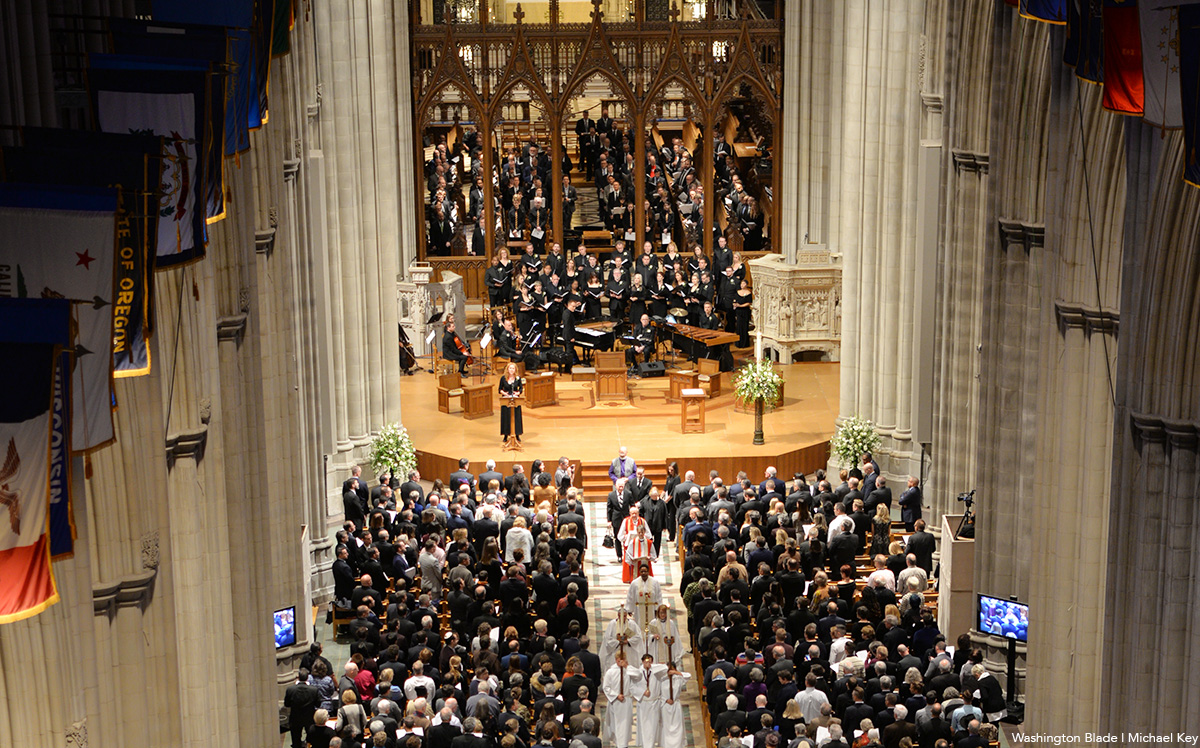
Berkshire Choral International will present a concert performance of composer Craig Hella Johnson’s fusion oratorio “Considering Matthew Shepard” on Friday, July 11, 2025 at 7:30 p.m. at the Washington National Cathedral.
The program will be guest conducted by Dr. Jeffrey Benson, a native of the DMV who currently serves as Director of Choral Activities at San José State University. The concert is a partial benefit for the Matthew Shepard Foundation. Notably, Matthew’s remains are interred at the National Cathedral and his parents, Dennis and Judy, will give opening remarks at the performance.
Tickets are $20 – $65, and 50% of ticket proceeds will be donated to the Matthew Shepard Foundation. Tickets are only available online at berkshirechoral.org.
Music & Concerts
Indigo Girls coming to Capital One Hall
Stars take center stage alongside Fairfax Symphony
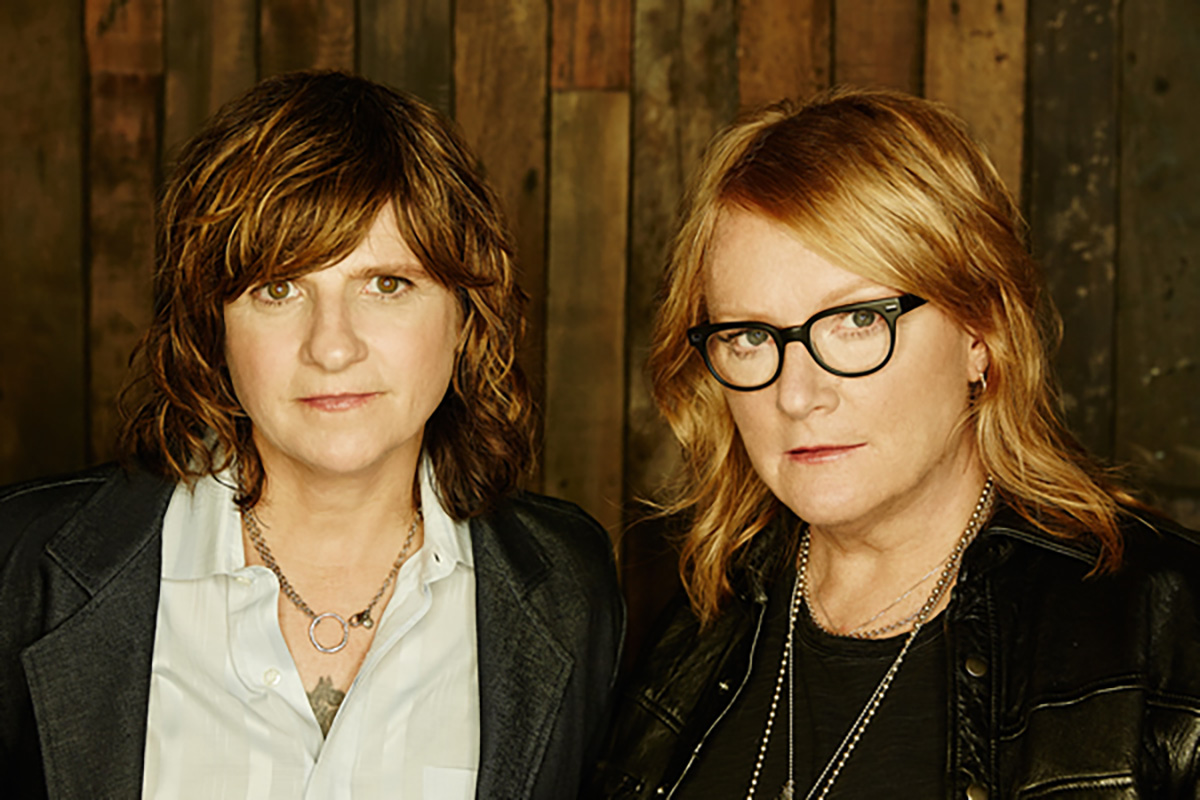
Capital One Center will host “The Indigo Girls with the Fairfax Symphony Orchestra” on Thursday, June 19 and Friday, June 20 at 8 p.m. at Capital One Hall.
The Grammy Award-winning folk and pop stars will take center stage alongside the Fairfax Symphony, conducted by Jason Seber. The concerts feature orchestrations of iconic hits such as “Power of Two,” “Get Out The Map,” “Least Complicated,” “Ghost,” “Kid Fears,” “Galileo,” “Closer to Fine,” and many more.
Tickets are available on Ticketmaster or in person at Capital One Hall the nights of the concerts.
-

 Virginia2 days ago
Virginia2 days agoDefying trends, new LGBTQ center opens in rural Winchester, Va.
-

 South Africa5 days ago
South Africa5 days agoLesbian feminist becomes South African MP
-

 Travel4 days ago
Travel4 days agoManchester is vibrant tapestry of culture, history, and Pride
-

 Opinions3 days ago
Opinions3 days agoUSAID’s demise: America’s global betrayal of trust with LGBTQ people





